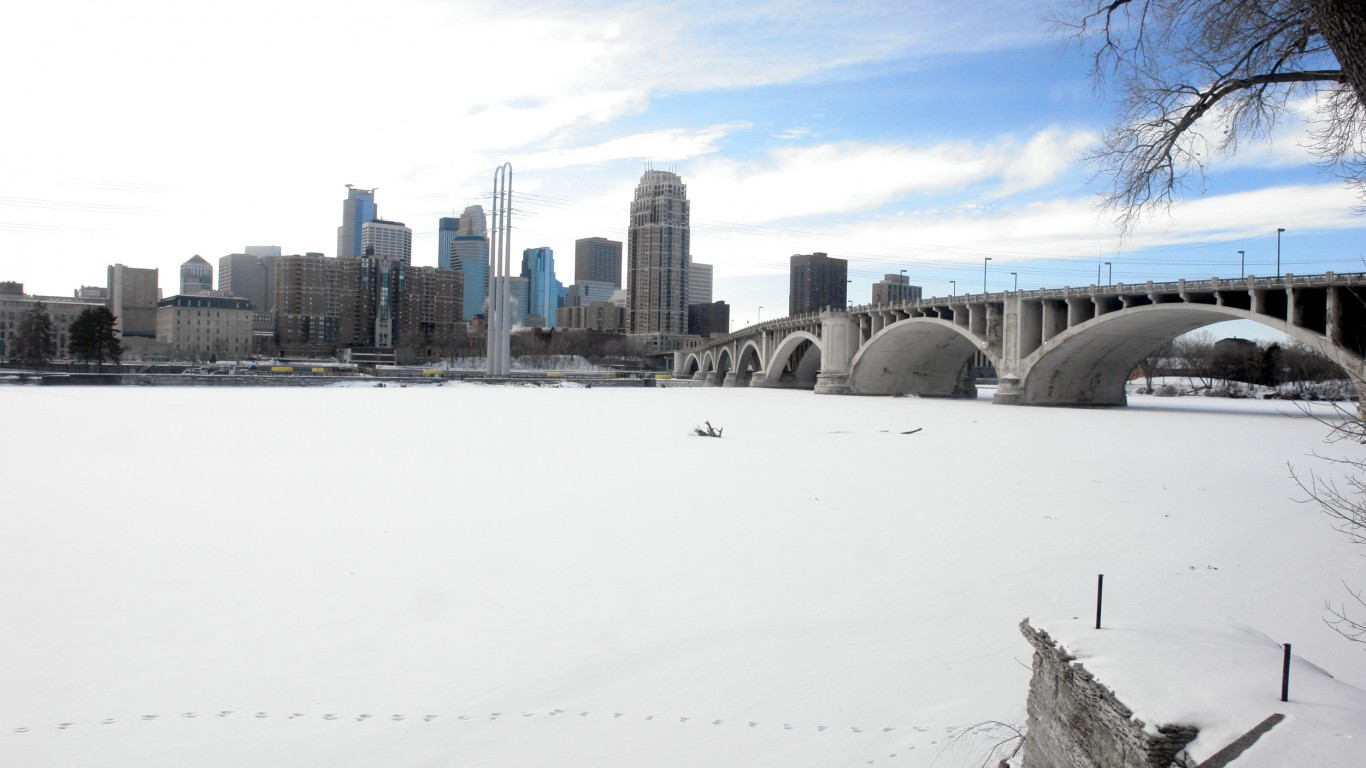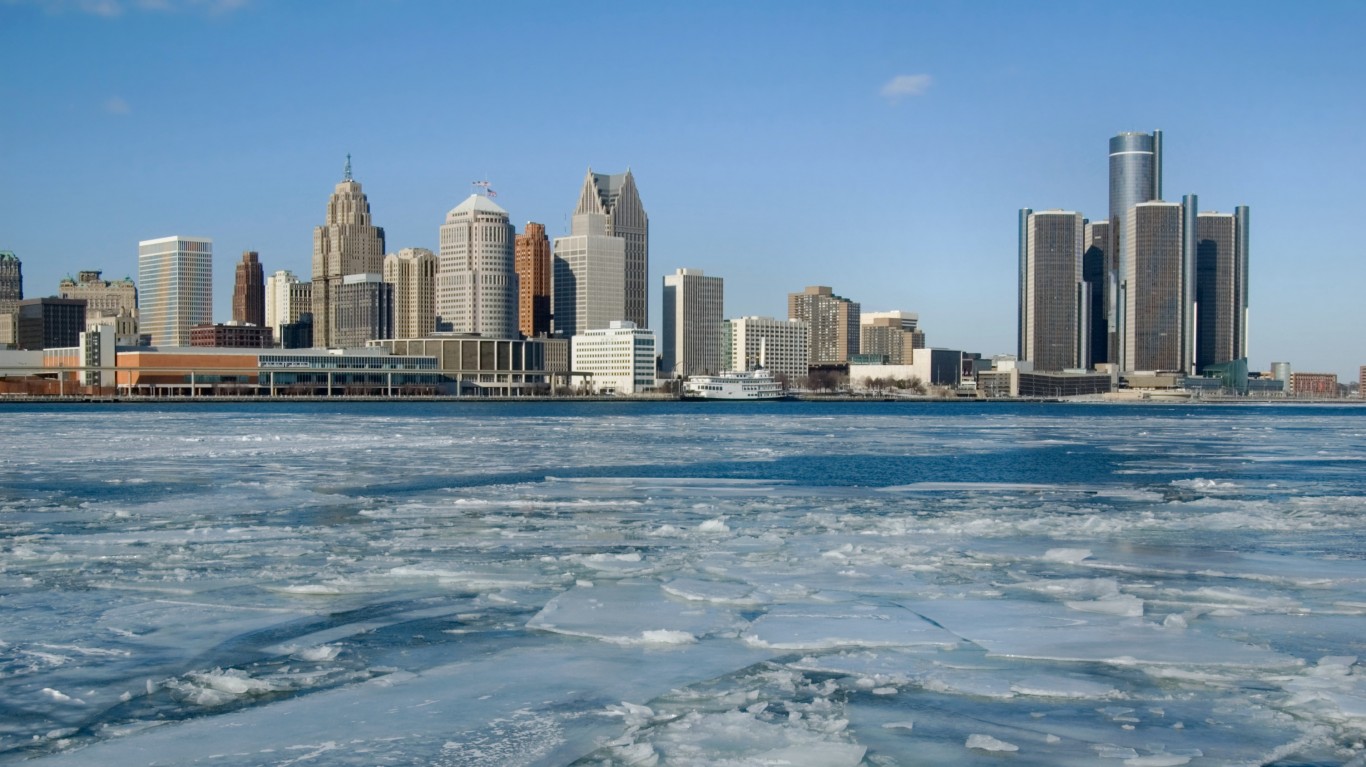
Michigan is beautiful from spring through fall, though many appreciate a real winter with snow and winter activities. The intense winters of Michigan come with some downsides, though. Let’s take a look at 10 reasons to avoid Michigan in winter. (Also read: Worst Cities for Winter Driving).
1. Freezing Temperatures
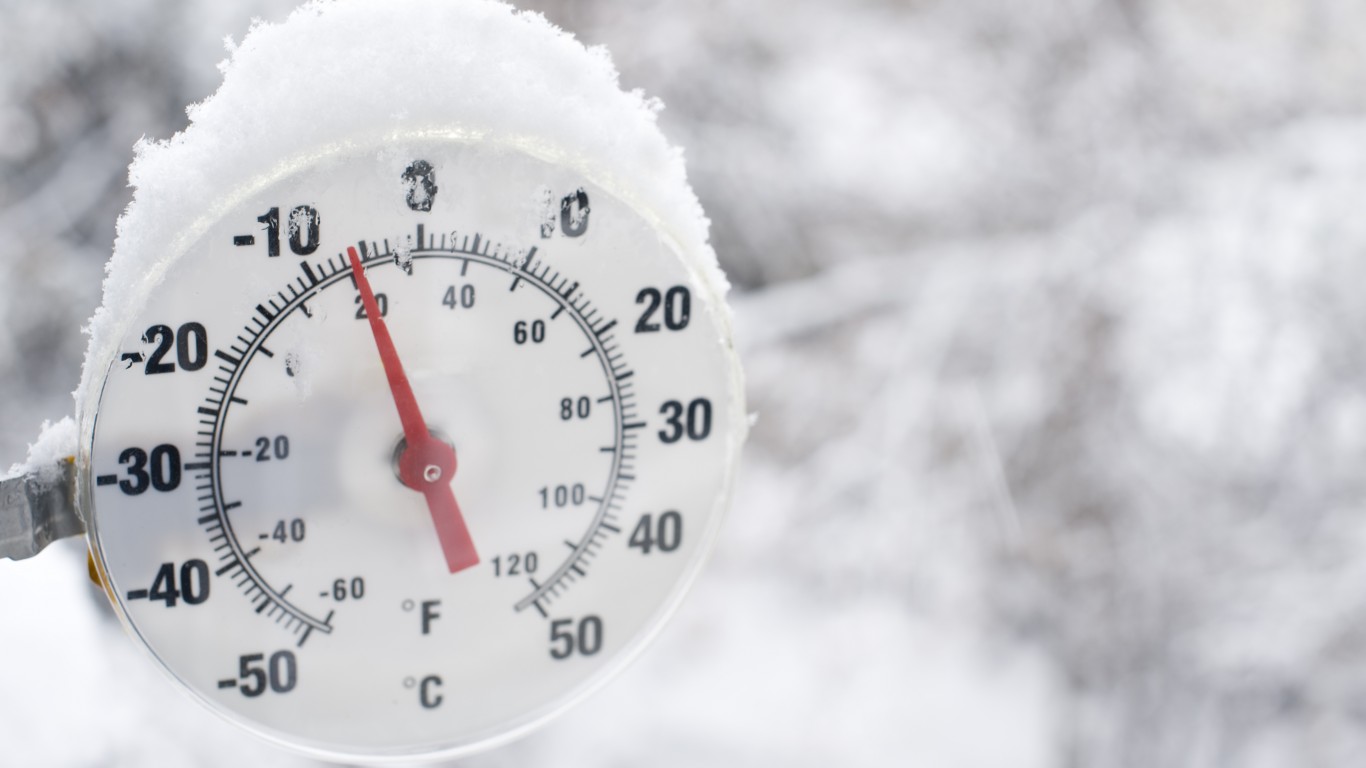
Michigan is one of the northernmost states of the U.S. These higher latitudes result in less sunshine and greater proximity to freezing Canadian and Arctic air messes. There are other, more practical problems besides the discomfort from colder temperatures. Lower temperatures bring high winter energy bills and the potential for frozen and ruptured water lines in and around the house. On freezing days, cars can become immobilized by frozen fuel lines. Finally, the personal hazard of being exposed to bitterly cold wind chills exists. Staying outside too long can expose you to frostbite and hypothermia.
2. Winter Storms
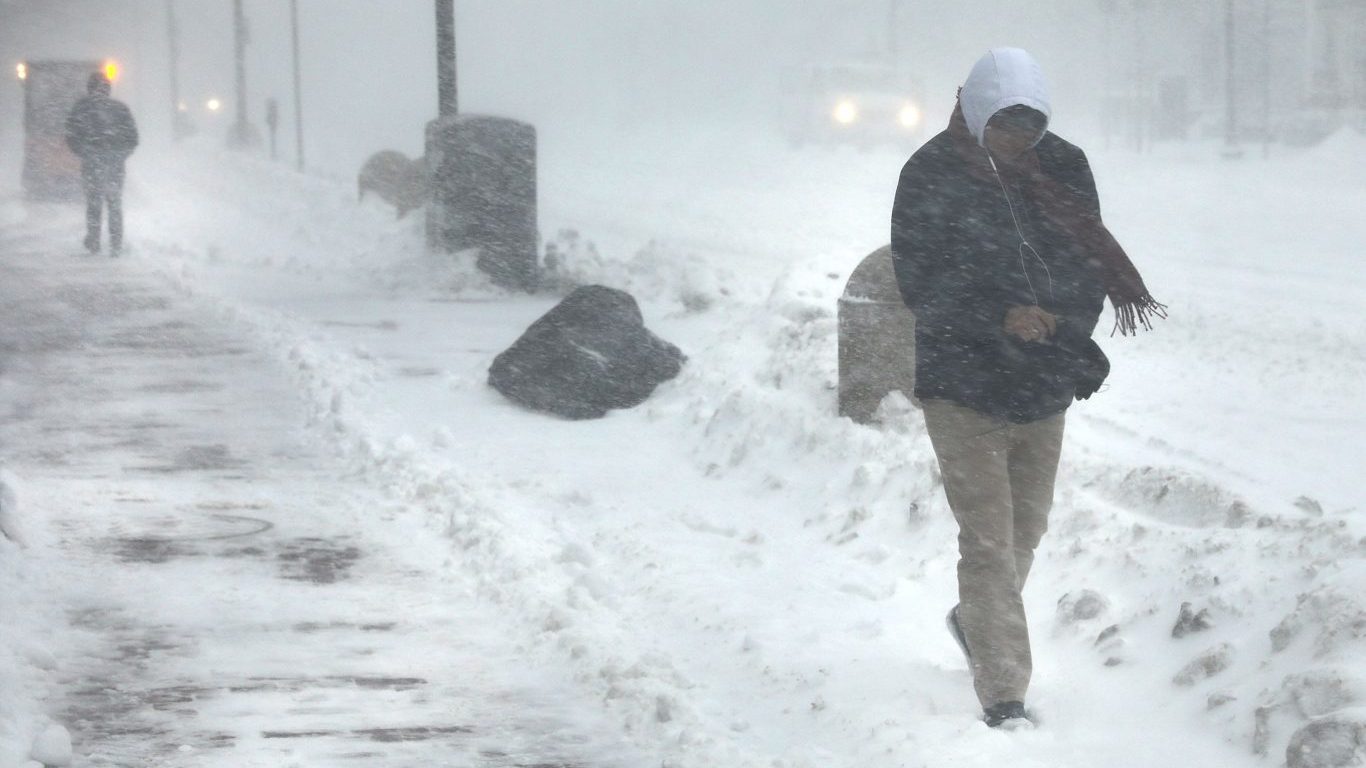
The arctic air masses sweeping through Michigan in winter sometimes bring precipitation. They can also interact with the warm waters of the Great Lakes or meet up with warm, moist air from the Gulf of Mexico. These are the key ingredients for massive winter storms. These winter storms bring additional freezing air, wind, snow, and ice, which can cripple the region for days on end. In addition to the large winter weather systems, areas around the Great Lakes are impacted by lake-effect snow, which happens when an unstable system picks up large quantities of warm, moist air from the lakes and deposits it within narrow bands just a few miles inland. These snows can fall fast and be intense for a narrow strip of land along the lake. Heavy, wet snow can cause roof and structural damage in some buildings.
3. Dreary Skies
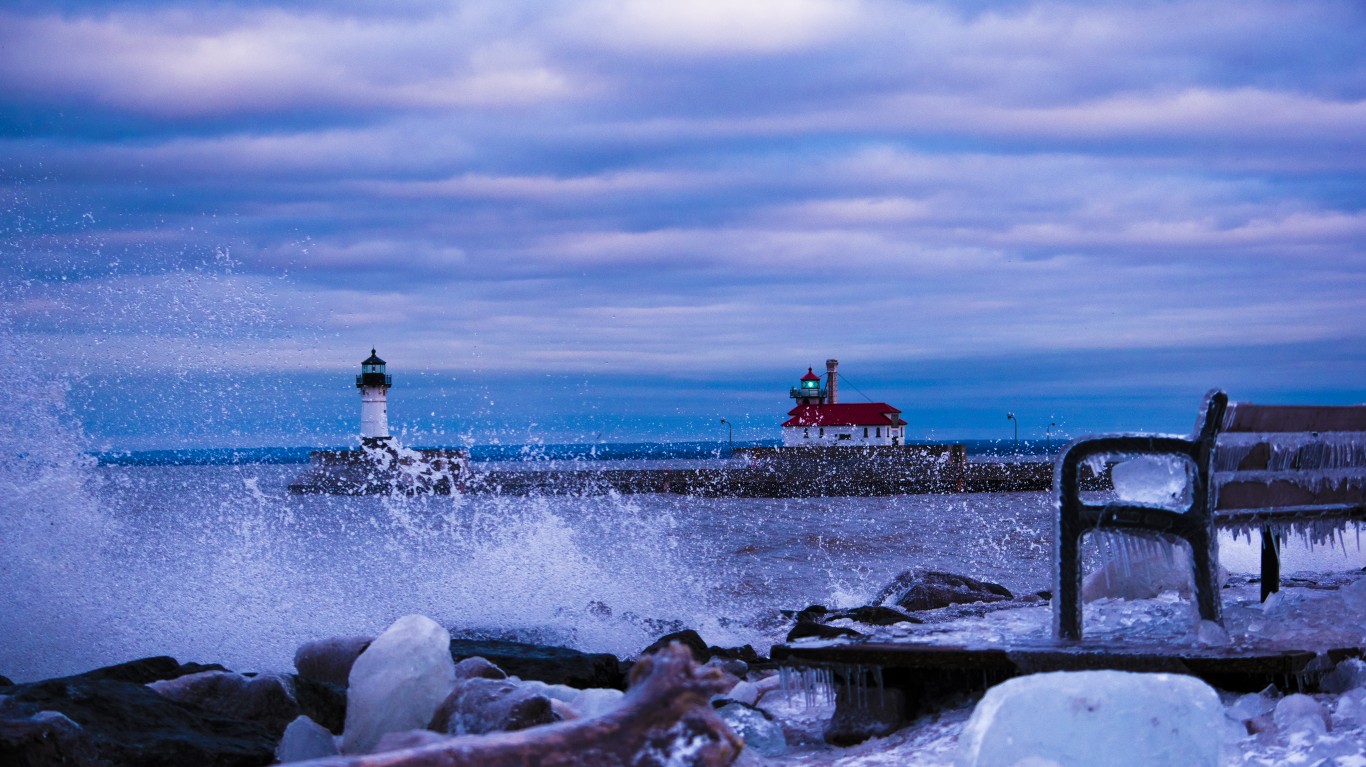
Michigan is known for having dreary skies in the winter, and climate change may worsen it. In addition to the cloud cover created by winter storm systems, the Great Lakes around Michigan are also responsible for creating cloud cover. As the lakes stay warmer in the winter, more water vapor creates cloud cover throughout the state. If you spend the winter in Michigan, you may want to add more Vitamin D to your diet and perhaps invest in a therapy light.
4. Temperature Swings
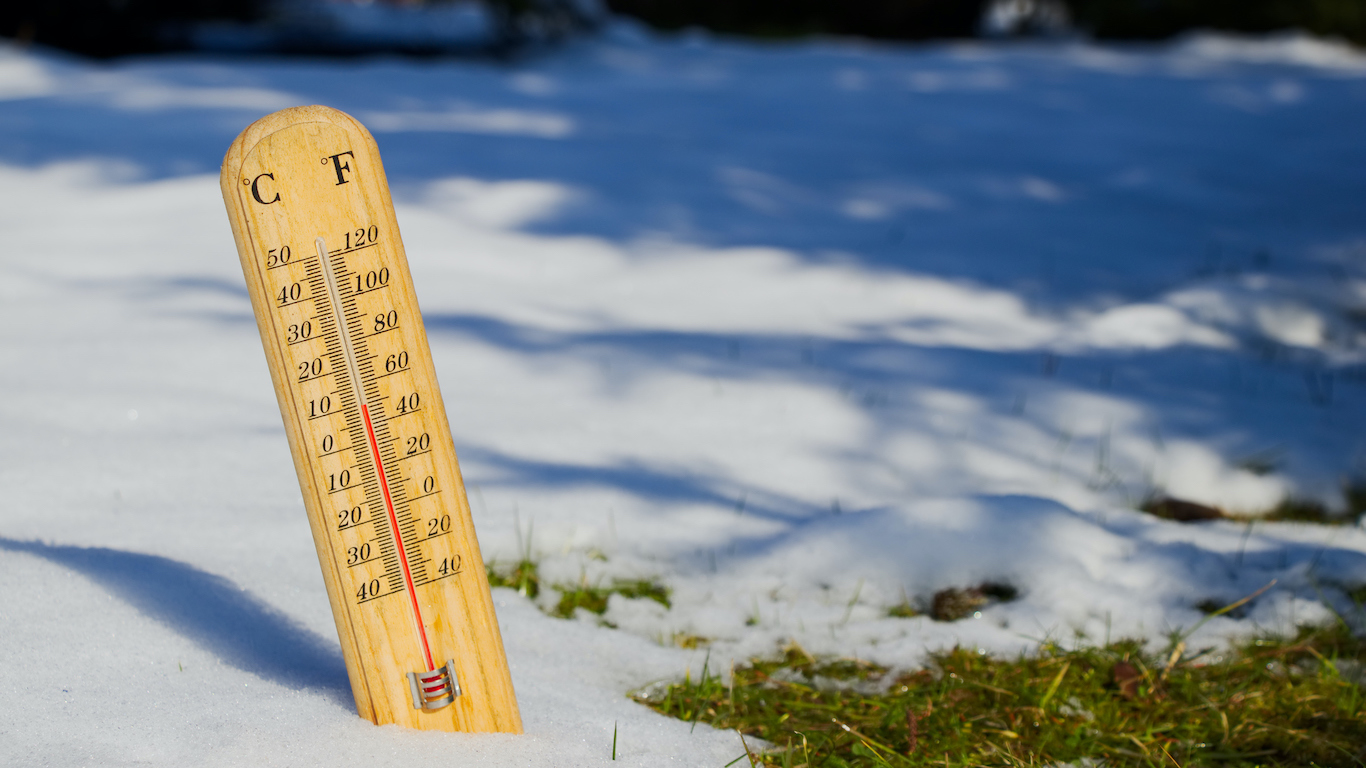
Michigan is vulnerable to extreme temperatures throughout the year. The all-time high temperature in July of 1936 was 112℉. The all-time low was -51℉, which happened in 1934. Michigan’s location in the upper Midwest means it is exposed to cold and warm fronts, bringing air masses from north, west, and east. Temperature swings mean that bitter cold spells can give way to unseasonably warm temperatures in a short amount of time. The reverse can also be true. Once winter hits, you can’t just put away your fall wardrobe.
5. Seasonal Depression

With Michigan’s decreased sunlight due to its latitude, overcast skies, and the isolation sometimes caused by stormy weather, residents can sometimes end up with the winter blues. Everybody is susceptible to these down moments during the winter, but sometimes people suffer a more extreme condition related to this. Increased listlessness, low energy, oversleeping, overeating, and lack of concentration may be reasons to consult a doctor.
6. Car Accidents
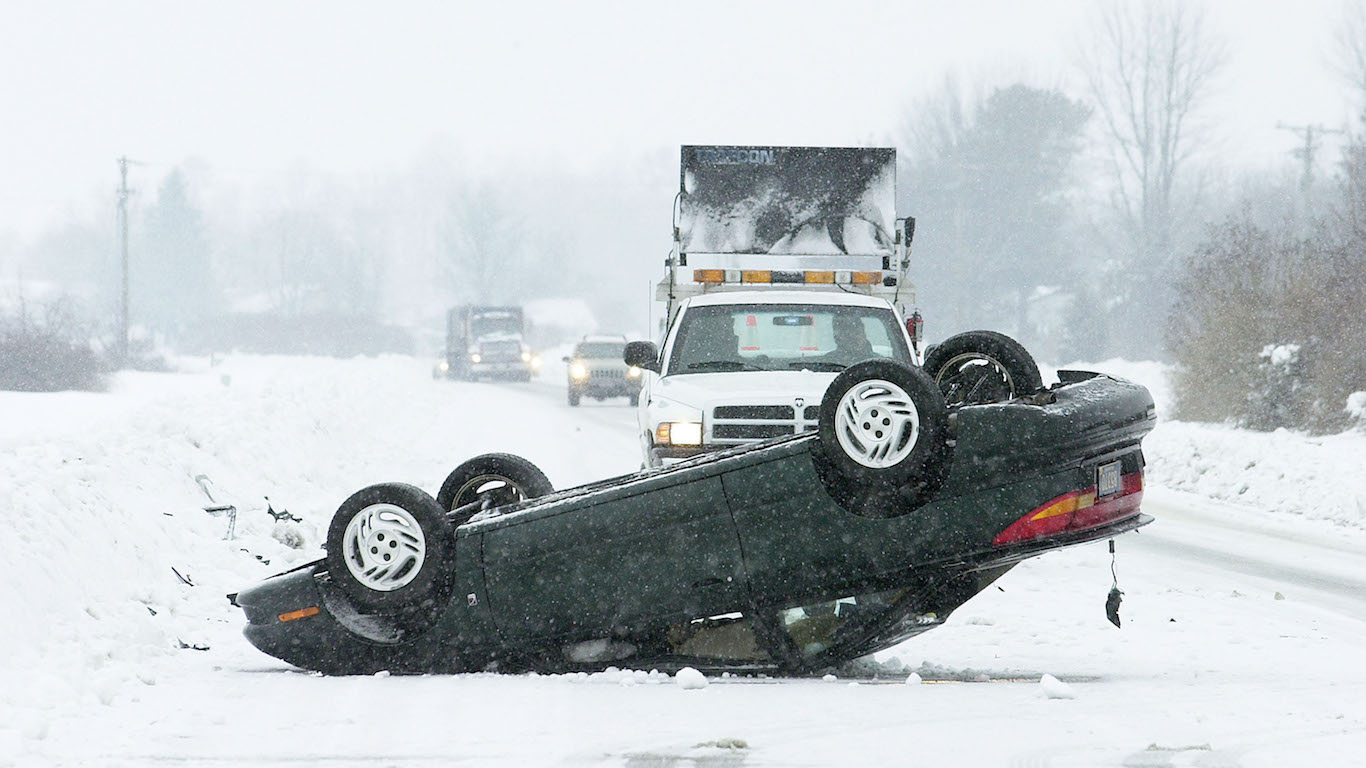
Freezing and stormy winter conditions can contribute to conditions likely to cause crashes. Braking can take much longer than usual—up to ten times as long! Visibility can also be low, making seeing obstacles or other vehicles more difficult. Sleet and freezing rain can make the roads even more treacherous than snow. Icy conditions may also be unevenly distributed, with bridges and overpasses freezing first. There are also what are known as patches of black ice, which are hard to see or anticipate. The long and short of it is, don’t drive too fast, don’t brake too quickly, leave yourself space, go at a slow pace, turn on your lights, and don’t drive distracted.
7. Potholes and Salt Damage to Cars
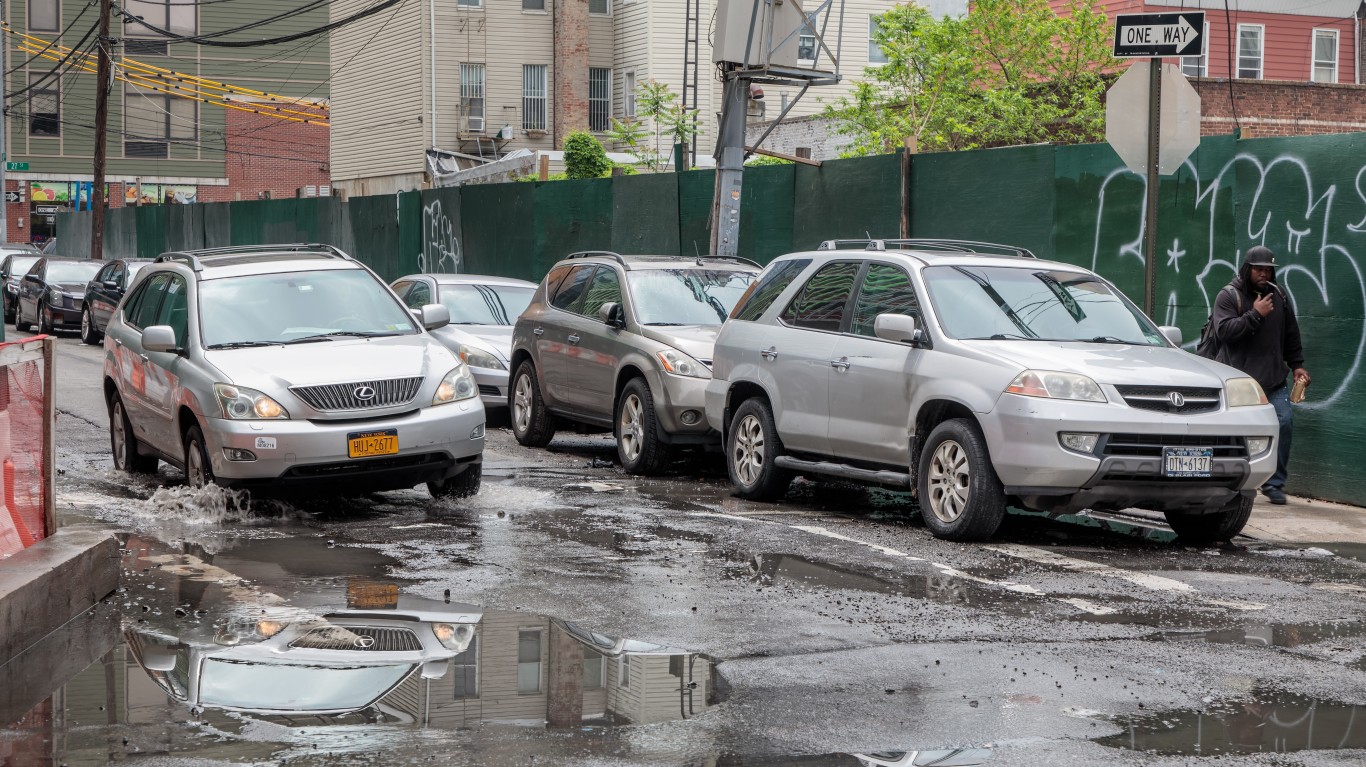
In addition to crashes, there are other ways your car can suffer in a Michigan winter. The temperature variability and precipitation contribute to the swelling and contracting of pavement, resulting in large potholes, which can damage your car. These potholes can appear almost overnight, so keep your eyes open once things thaw out. Also, salt and other chemicals that melt snow and ice can accumulate on your car’s underbody, resulting in corrosion and eventual structural damage.
8. Illness

During winter in Michigan, freezing temperatures, winter storms, and cloudy skies conspire to keep people indoors and in close proximity to one another. This creates a breeding ground for all kinds of bacteria and viruses. Illness spreads through schools, offices, churches, homes, and other places where people gather. People who have experienced this are familiar with seasons when it feels like somebody in the house is always sick.
9. Carbon Monoxide Poisoning
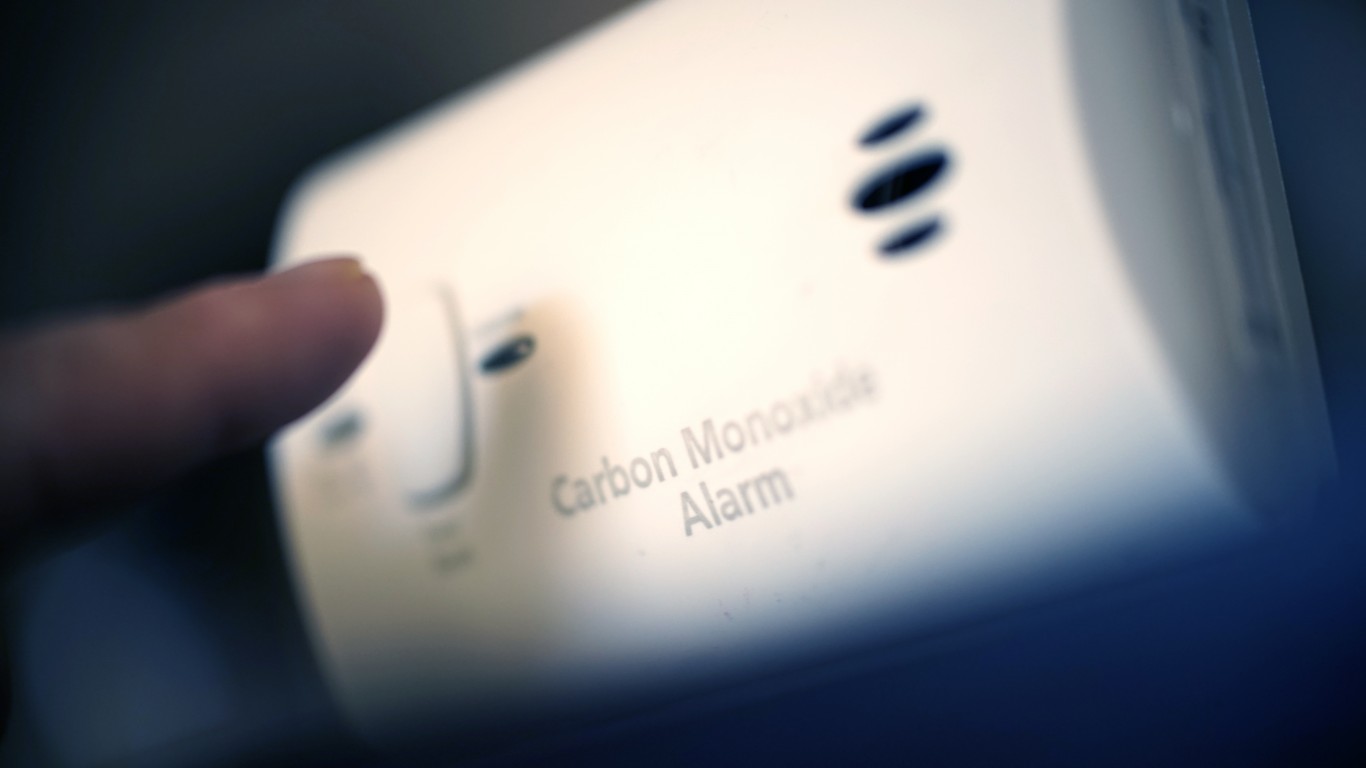
Keeping warm in winter can be challenging in Michigan, but doing this incorrectly can be deadly. Using fuel-burning space heaters in an unventilated space can create an accumulation of carbon monoxide. Also, defective water heaters, furnaces, gas appliances, gas fireplaces, and chimneys can cause carbon monoxide poisoning. Cars stuck in the snow may end up with exhaust backing up into the vehicle, which also can cause carbon monoxide poisoning.
10. Heart Attacks
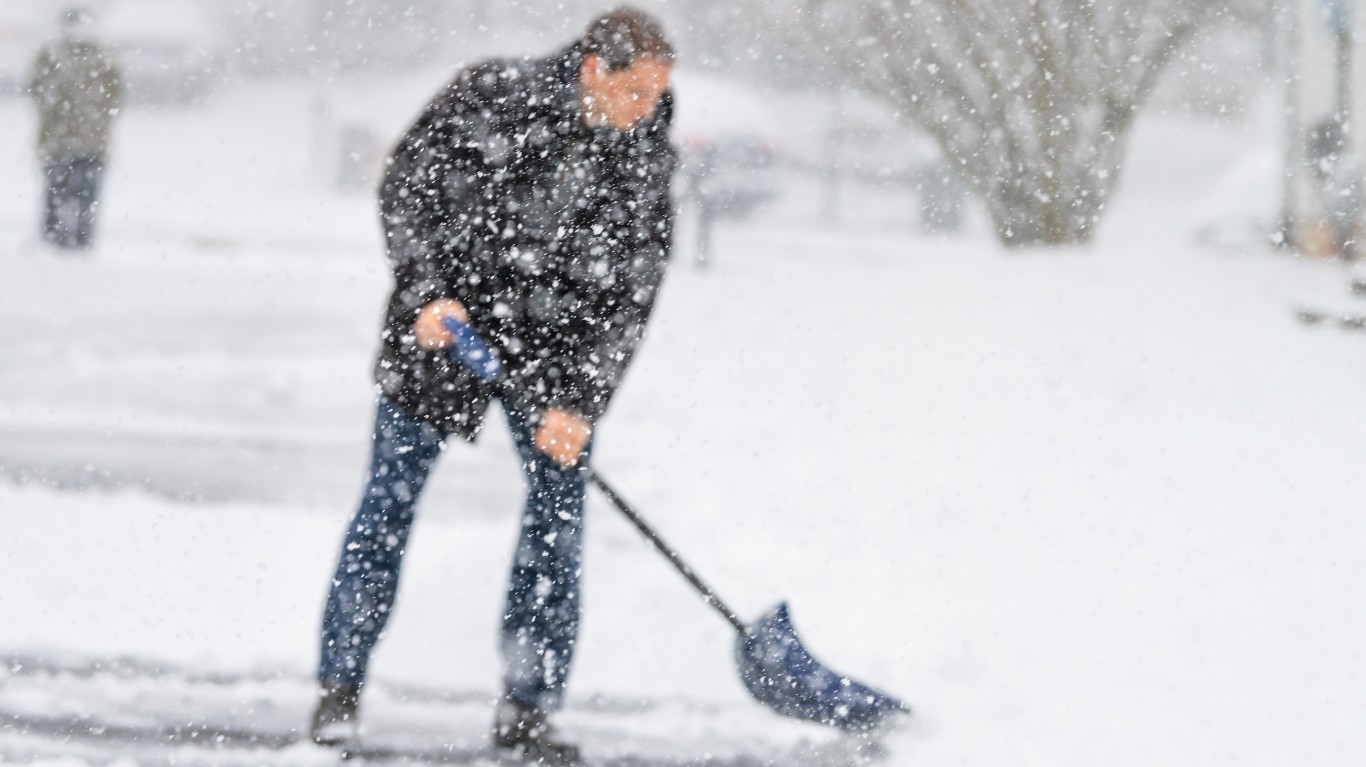
As winter storms roll through Michigan, roads and walkways must be cleared. Shoveling the walk seems innocuous, but it can be fatal. It requires contracting muscles that aren’t typically used rather than working at the joints. The cold temperatures constrict blood vessels, driving up blood pressure. The work exerted by your arms is more taxing than the legs. Standing allows blood to pool in your legs, keeping it from getting oxygen to your heart. Also, shoveling encourages you to hold your breath, driving your blood pressure up. This makes the shoveler many times more susceptible to a heart attack. These rates increase if the person is older, inactive, or suffering from heart disease. Given the many storms in Michigan, snow shoveling is a high-risk activity.
It’s Your Money, Your Future—Own It (sponsor)
Are you ahead, or behind on retirement? For families with more than $500,000 saved for retirement, finding a financial advisor who puts your interest first can be the difference, and today it’s easier than ever. SmartAsset’s free tool matches you with up to three fiduciary financial advisors who serve your area in minutes. Each advisor has been carefully vetted and must act in your best interests. Start your search now.
If you’ve saved and built a substantial nest egg for you and your family, don’t delay; get started right here and help your retirement dreams become a retirement reality.
Thank you for reading! Have some feedback for us?
Contact the 24/7 Wall St. editorial team.
